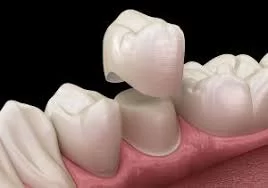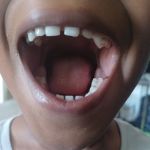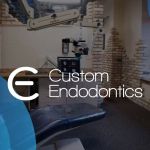
How to Avoid Dental Crowns with Proper Care: Essential Tips for Healthy Teeth
- Understanding Dental Crowns
- Why Preventing Crowns Is Important
- Daily Dental Care to Prevent Crowns
- Diet and Lifestyle Tips for Healthy Teeth
- Visiting the Dentist Regularly
1. Understanding Dental Crowns
A dental crown is a cap that covers a damaged tooth to restore its shape, size, and strength. Crowns are typically used when a tooth is significantly decayed, cracked, or worn down. While crowns are an effective solution for saving a tooth, they are often a last resort. Preventing the need for a crown can save you time, money, and the discomfort of invasive procedures.
Many people are unaware that proper dental care can significantly reduce the risk of needing crowns. Understanding the factors that contribute to tooth damage can help you take proactive steps to avoid this costly procedure.
2. Why Preventing Crowns Is Important
While dental crowns are designed to restore damaged teeth, they are not a perfect solution. The process of getting a crown involves removing a significant amount of tooth structure, which can weaken the tooth over time. Furthermore, crowns can be expensive and may require periodic replacement. Preventing the need for crowns allows you to maintain your natural teeth, which are more durable and healthier in the long run.
Moreover, maintaining healthy teeth can help you avoid potential complications such as infections, gum disease, and other oral health issues that may require further dental treatments. Keeping your natural teeth in good shape can also reduce the need for other dental procedures down the line.
3. Daily Dental Care to Prevent Crowns
One of the most effective ways to avoid dental crowns is by practicing excellent daily dental care. Here are some key habits to incorporate into your routine:
- Brush Twice a Day: Brushing your teeth with fluoride toothpaste at least twice daily helps remove plaque and bacteria that contribute to tooth decay.
- Floss Daily: Flossing is crucial to remove food particles and plaque from between your teeth, which can prevent cavities and gum disease.
- Use Mouthwash: An antimicrobial mouthwash can help kill bacteria and keep your mouth fresh, reducing the risk of infections that could damage your teeth.
- Choose the Right Toothbrush: A soft-bristled toothbrush is gentle on your teeth and gums, reducing the risk of enamel erosion.
By maintaining a consistent and thorough oral hygiene routine, you can significantly lower the risk of tooth damage that could lead to crowns.
4. Diet and Lifestyle Tips for Healthy Teeth
What you eat and how you live can have a big impact on the health of your teeth. A healthy diet can strengthen your enamel and prevent cavities, while unhealthy habits can increase your risk of tooth damage. Here are some tips for keeping your teeth in top condition:
- Avoid Sugary Foods and Drinks: Sugary foods and beverages can contribute to plaque buildup, which can lead to tooth decay and other issues that require crowns.
- Eat Calcium-Rich Foods: Calcium helps strengthen your teeth and bones. Include dairy products, leafy greens, and almonds in your diet to promote strong teeth.
- Limit Acidic Foods: Acidic foods and drinks, like citrus fruits and soda, can erode enamel and make teeth more susceptible to decay and damage.
- Quit Smoking: Smoking not only harms your gums but also increases your risk of tooth decay and other dental problems that may lead to the need for crowns.
Incorporating these diet and lifestyle changes into your daily routine will support your efforts to maintain healthy teeth and avoid the need for crowns.
5. Visiting the Dentist Regularly
Regular dental check-ups are essential for maintaining healthy teeth and preventing crowns. A dentist can identify early signs of decay, cracks, or other issues before they become serious problems. Catching dental problems early allows for conservative treatments such as fillings or sealants, which can prevent the need for crowns.
During your visit, your dentist can also give you personalized advice on how to improve your oral hygiene and address any habits that may be putting your teeth at risk. Most experts recommend visiting the dentist every six months for a routine cleaning and check-up.
In conclusion, while dental crowns can save damaged teeth, they are not always necessary. By following these simple tips, you can avoid the need for crowns and maintain your natural smile for years to come. Proper oral hygiene, a balanced diet, and regular dentist visits are the foundation of good dental health, helping you keep your teeth in top condition.
If you're looking for products that can help you maintain your oral health and prevent the need for crowns, consider investing in high-quality toothpaste, toothbrushes, and floss. Staying proactive about your dental care is key to avoiding costly dental procedures and keeping your teeth healthy.







 Worcester Dental Arts5.0 (579 review)
Worcester Dental Arts5.0 (579 review) South Bay Children's Health Center5.0 (106 review)
South Bay Children's Health Center5.0 (106 review) Custom Endodontics4.0 (67 review)
Custom Endodontics4.0 (67 review) Dentistry NW4.0 (245 review)
Dentistry NW4.0 (245 review) CAMcare Health Corporation- Clementon4.0 (341 review)
CAMcare Health Corporation- Clementon4.0 (341 review) Corbin Dental at Oyster Bay4.0 (189 review)
Corbin Dental at Oyster Bay4.0 (189 review) The Importance of Oral Health Education During Pregnancy for a Healthy Pregnancy
The Importance of Oral Health Education During Pregnancy for a Healthy Pregnancy Best Tips for Brushing Your Teeth Properly for Healthy Gums: Essential Techniques for Oral Health
Best Tips for Brushing Your Teeth Properly for Healthy Gums: Essential Techniques for Oral Health Why Skipping Dental Checkups Can Lead to Bigger Oral Health Problems
Why Skipping Dental Checkups Can Lead to Bigger Oral Health Problems Advantages of Porcelain Dental Restorations
Advantages of Porcelain Dental Restorations How Can Diabetes Cause Tooth and Gum Problems? Preventing and Managing Oral Health Issues
How Can Diabetes Cause Tooth and Gum Problems? Preventing and Managing Oral Health Issues Healthy Habits for Promoting Good Oral Health and Hygiene: Tips for a Healthy Smile
Healthy Habits for Promoting Good Oral Health and Hygiene: Tips for a Healthy Smile